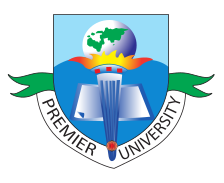
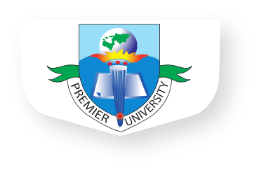



Professor S.M. Nasrul Qadir, Vice-Chancellor of Premier University, Chattogram, is a respected academic and former Dean of the Faculty of Business Administration at the University of Chittagong. In a candid interview with Daily People’s View, he shared his insights on the post-August 5 political shift, the evolving landscape of higher education, and the role of academia in shaping the nation’s future. The Interview has been conducted by Nur Nabi Robin, Staff Reporter, The Daily People’s View.
People’s View: After the mass uprising of August 5, the country has undergone many changes. Has this transformation reached educational institutions as well?
Prof. Nasrul Qadir: Thank you to ‘People’s View’ for giving me this opportunity. Yes, the winds of change following the August 5 revolution have indeed reached the education sector. We’ve seen a shift away from the monopolized, politicized control in many campuses where education took a backseat. That era, where a single ideology was imposed and dissent was suppressed, is now fading. We’re witnessing a healthier academic environment where merit and expertise are being prioritized, especially in university appointments. Interim governments have appointed vice-chancellors, pro-vice-chancellors, and other key figures based on qualifications and integrity rather than political loyalty.
Most importantly, students and faculty are now engaging in open dialogue, focusing on learning and intellectual growth. Our collective mission is to provide quality education because today’s students are the leaders of tomorrow.
People’s View: Previously, student wings of the ruling party created an atmosphere of fear on campuses. Has that changed?
Prof. Nasrul Qadir: Thankfully, yes. We all remember the torture cells in residential hall, forced political affiliation, bullying in common rooms, and denial of academic rights for dissenting students. It was a dark period where education was severely disrupted. But the revolution has paved the way for pluralistic politics on campuses. Students can now freely express their beliefs without fear, contributing to a much healthier and more democratic learning environment.
People’s View: Do you think Chattogram lags behind in higher education?
Prof. Nasrul Qadir: Unfortunately, yes. Despite being an industrial hub, Chattogram’s wealthy elites have not shown the same enthusiasm for investing in education as seen in Dhaka or other developed regions. The industrialists here have the resources and influence to make a difference, but their contributions to academia remain limited. We expected more from them in terms of building institutions and supporting future citizens.
People’s View: What role is the Chattogram City Corporation (CCC) playing in the development of Premier University?
Prof. Nasrul Qadir: Premier University is under the authority of the Chattogram City Corporation. Mayor Dr. Shahadat Hossain has been extremely supportive. He formed the university’s trustee board according to rules, and appointed the vice-chancellor and pro-vice-chancellor based on merit. He has given us full autonomy and is always ready to assist. He encourages us to do whatever it takes to elevate Premier University to a distinguished position in the private education sector.
People’s View: Having served at the University of Chittagong for decades, what do you think needs to be done to enhance academic standards there?
Prof. Nasrul Qadir: I spent over 30 years at the University of Chittagong, most recently as Dean of Business Administration. Since the recent political shift, the university is focusing more on research and international collaboration. The current administration is emphasizing seminars, workshops, and partnerships with foreign universities. We are already seeing foreign delegates visiting and signing MOUs. I believe that within a short time, the academic quality at CU will reach new heights.
People’s View: What steps are you taking to develop skilled graduates and expand employment opportunities?
Prof. Nasrul Qadir: At Premier University, we’re working to build strong academia-industry linkages. We’re signing MOUs with both local and international institutions. This will help us align our academic programs with market demands, ensuring that students graduate with relevant, employable skills. We want to produce capable, intelligent, and productive citizens who can thrive in a competitive global environment.
People’s View: How should students and teachers balance their involvement in politics?
Prof. Nasrul Qadir: I’m not saying students or teachers should avoid politics, it’s essential for a healthy democracy. However, we must avoid blind allegiance to any party. Educators should be politically aware but not partisan. Their role is to guide and contribute intellectually. Students, too, should learn the principles of politics, not through violence or muscle power, but through critical thinking and ethical leadership. After August 5, it’s become clear that Bangladesh needs politics rooted in intellect and merit, not slogans and shows of strength.
People’s View: Some argue that after the fall of authoritarian rule, students have become too politically active and neglected their studies. How do you respond?
Prof. Nasrul Qadir: It’s true that between July and August 5, students were heavily involved in political movements. But it was for a just cause ending a fascist regime. Their activism gave us a new Bangladesh. However, I believe that now is the time to prioritize academics. Politics is important, but it must not come at the cost of education. In this era of AI, digital innovation, and intellectual advancement, there is no substitute for learning. To contribute to the nation, students must be both politically aware and academically strong.
Professor Nasrul Qadir’s vision for education blends reform, research, and responsibility. As Chattogram transitions into a new era, leaders like him are working to ensure that institutions don’t just produce graduates, but informed citizens ready to shape a just, innovative, and democratic society.
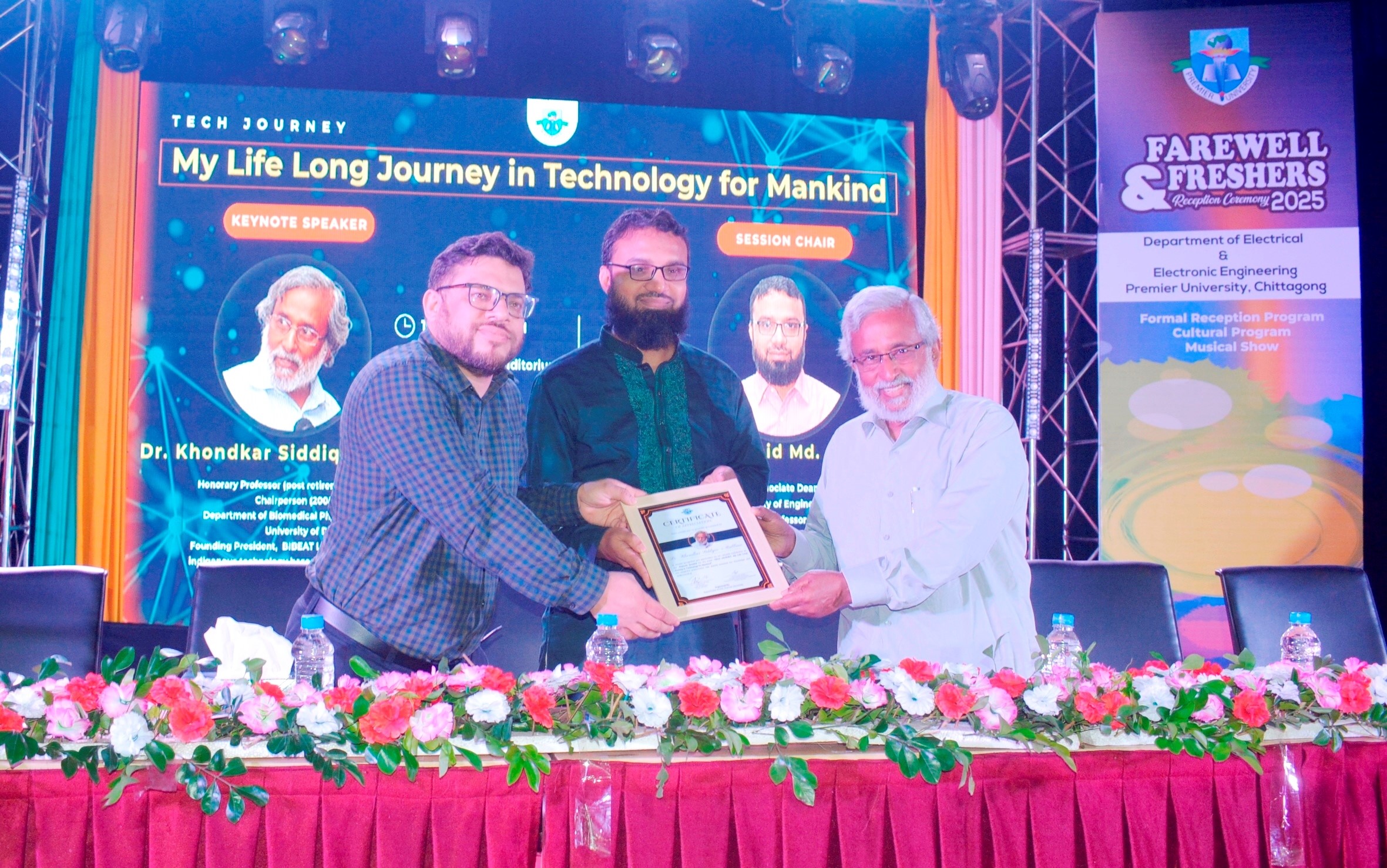
প্রিমিয়ার ইউনিভার্সিটিতে প্রযুক্তির মানবিক ব্যবহারের উপর সেমিনার অনুষ্ঠিত ।
Read More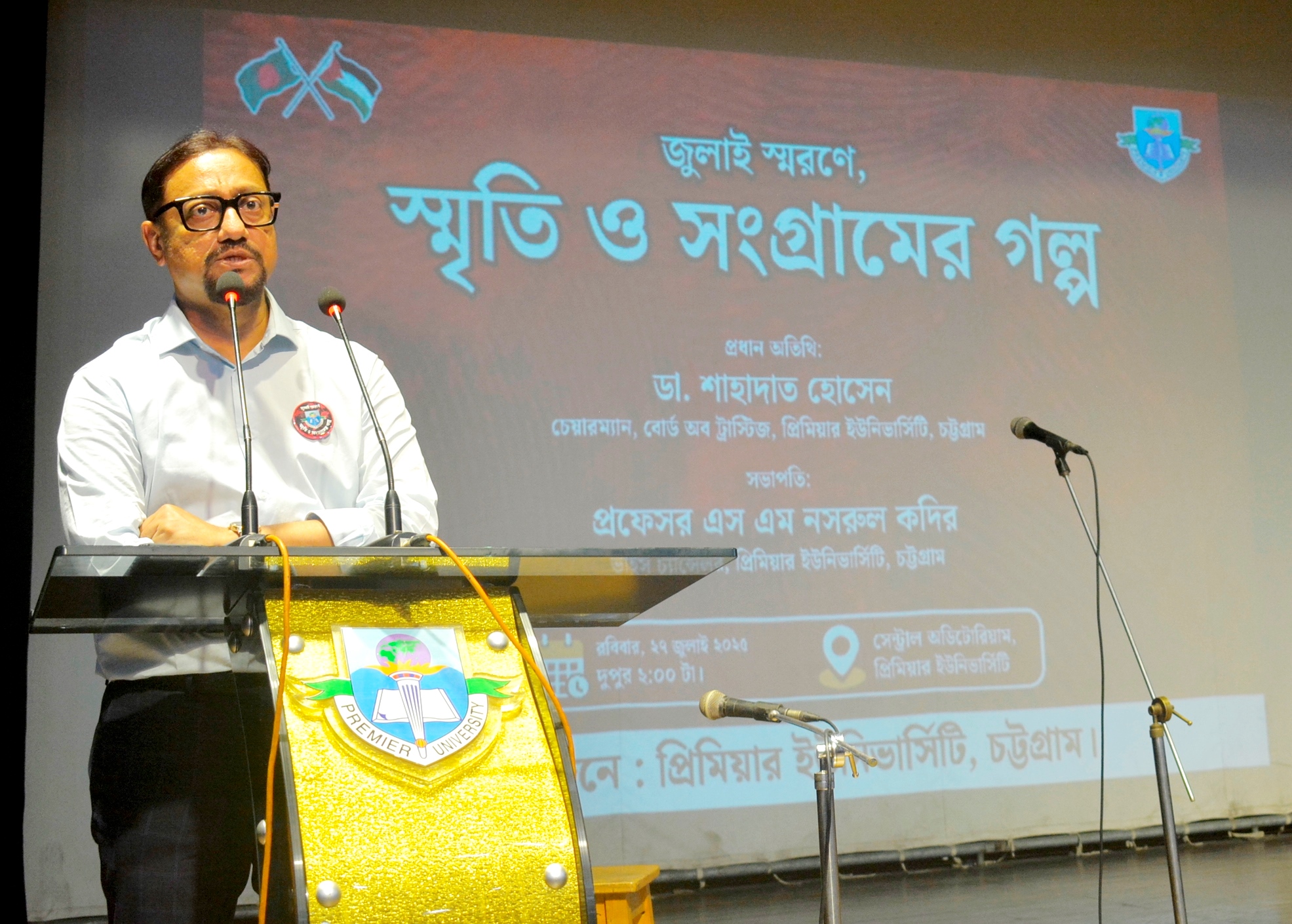
প্রিমিয়ার ইউনিভার্সিটিতে ‘জুলাই স্মরণে: স্মৃৃতি ও সংগ্রামের গল্প’ শীর্ষক অনুষ্ঠানে সিটি মেয়র ডাঃ শাহাদাত হোসেন জুলাই গণঅভ্যুত্থান আমাদের জাতীয় ইতিহাসের গৌরবগাথার এক সাহসী অধ্যায় ।
Read More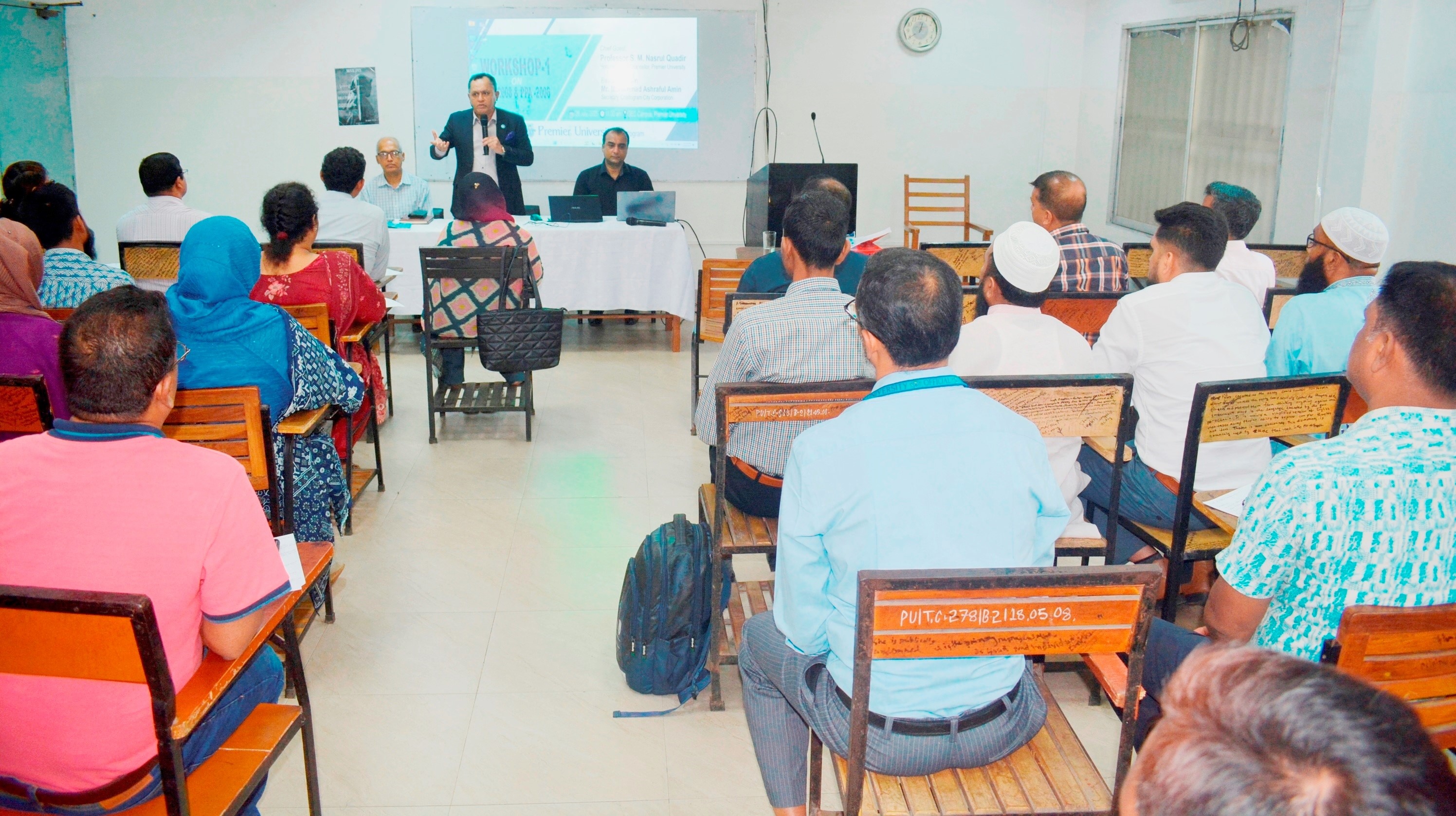
প্রিমিয়ার ইউনিভার্সিটিতে পাবলিক প্রকিউরমেন্ট বিষয়ক ওয়ার্কশপ অনুষ্ঠিত ।
Read More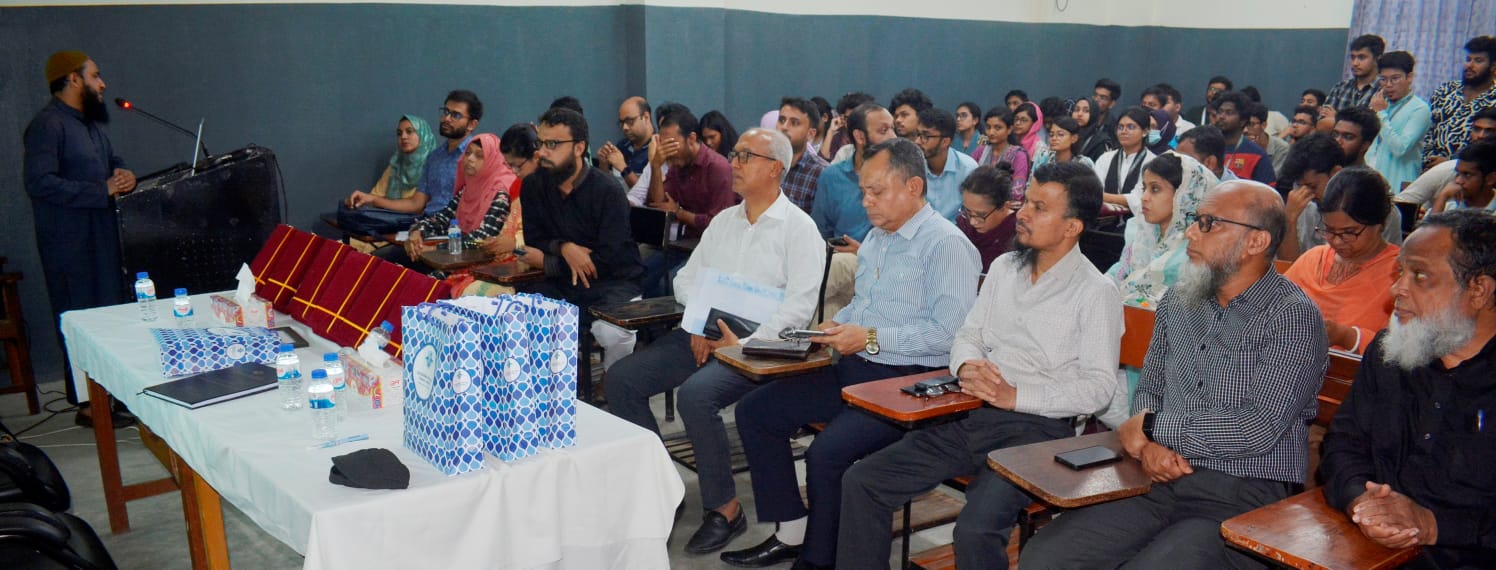
প্রিমিয়ার ইউনিভার্সিটিতে ব্লকচেইন লেনদেন বিশ্লেষণে অস্বাভাবিকতা শনাক্তকরণ বিষয়ক গবেষণা সেমিনার ।
Read More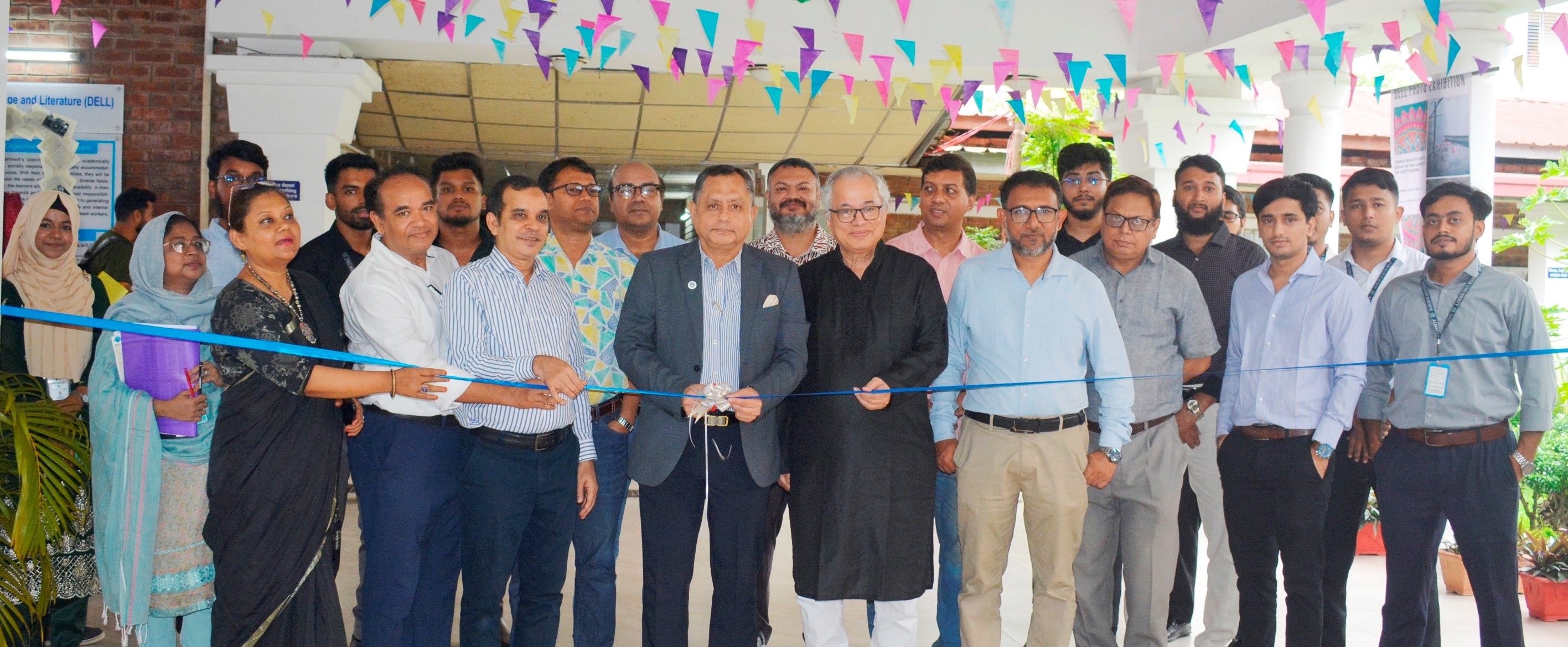
প্রিমিয়ার ইউনিভার্সিটির ইংরেজি বিভাগে আলোকচিত্র প্রদর্শনী ।
Read More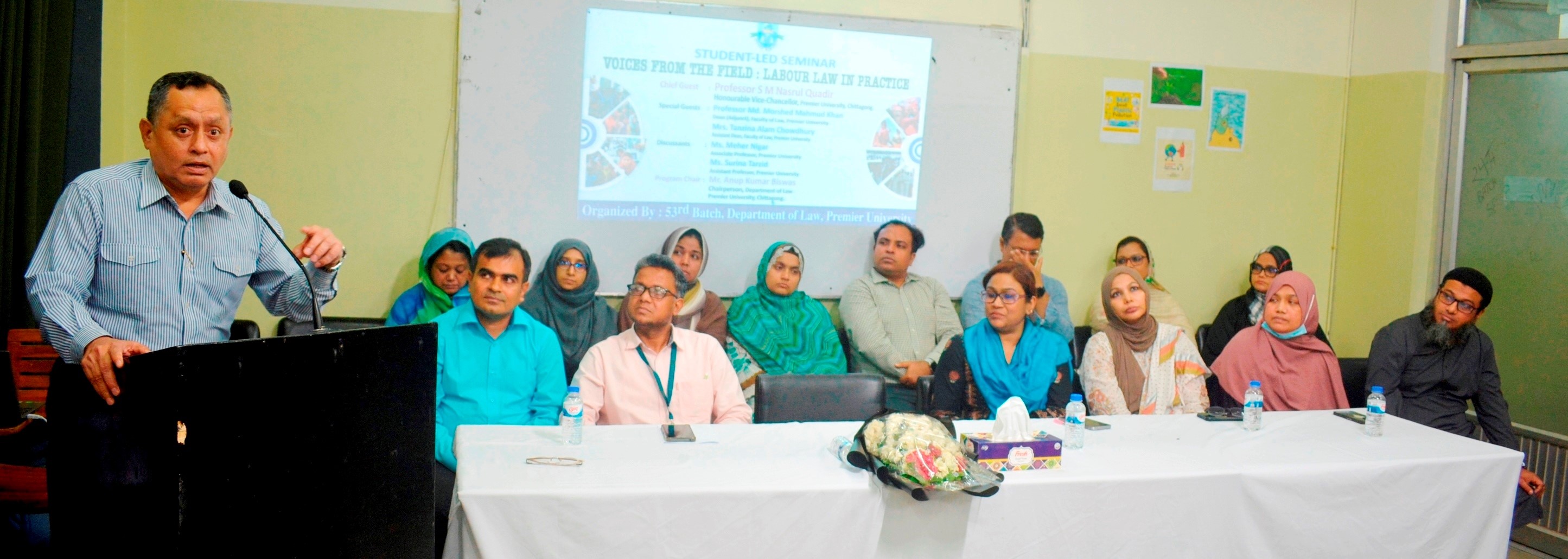
প্রিমিয়ার ইউনিভার্সিটির আইন বিভাগে ‘ভয়েসেস ফ্রম দি ফিল্ড: লেবার ল’ ইন প্র্যাকটিস’ শীর্ষক সেমিনার অনুষ্ঠিত।
Read More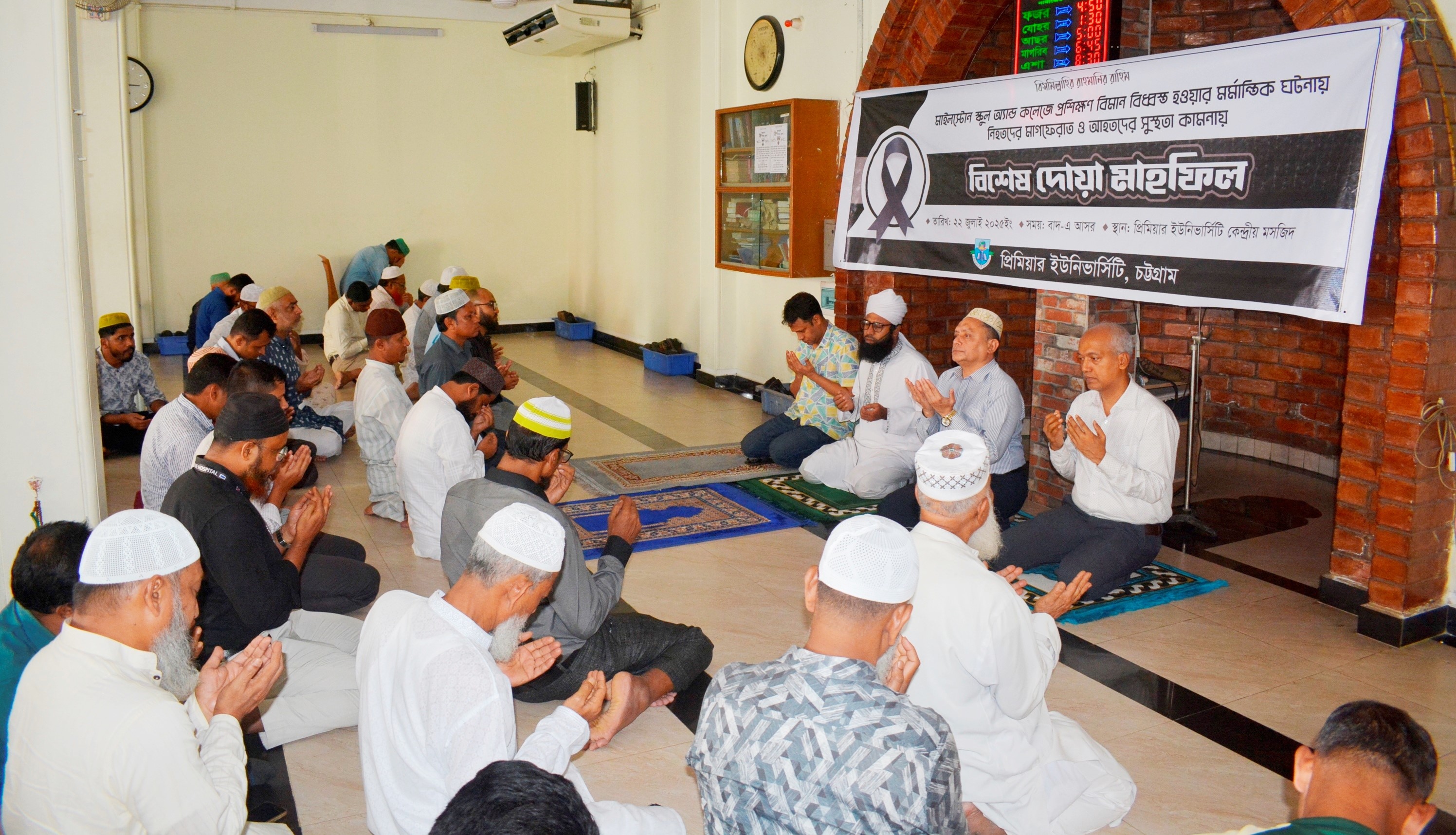
প্রিমিয়ার ইউনিভার্সিটিতে মাইলস্টোন স্কুল অ্যান্ড কলেজের নিহত শিক্ষার্থীদের আত্মার মাগফেরাত ও আহতদের সুস্থতা কামনায় দোয়া মাহফিল ।
Read MoreSunday, 29 June, 2025
Professor S.M. Nasrul Qadir, Vice-Chancellor of Premier University, Chattogram, is a respected academic and former Dean of the Faculty of Business Administration at the University of Chittagong. In a candid interview with Daily People’s View, he shared his insights on the post-August 5 political shift, the evolving landscape of higher education, and the role of academia in shaping the nation’s future. The Interview has been conducted by Nur Nabi Robin, Staff Reporter, The Daily People’s View.
People’s View: After the mass uprising of August 5, the country has undergone many changes. Has this transformation reached educational institutions as well?
Prof. Nasrul Qadir: Thank you to ‘People’s View’ for giving me this opportunity. Yes, the winds of change following the August 5 revolution have indeed reached the education sector. We’ve seen a shift away from the monopolized, politicized control in many campuses where education took a backseat. That era, where a single ideology was imposed and dissent was suppressed, is now fading. We’re witnessing a healthier academic environment where merit and expertise are being prioritized, especially in university appointments. Interim governments have appointed vice-chancellors, pro-vice-chancellors, and other key figures based on qualifications and integrity rather than political loyalty.
Most importantly, students and faculty are now engaging in open dialogue, focusing on learning and intellectual growth. Our collective mission is to provide quality education because today’s students are the leaders of tomorrow.
People’s View: Previously, student wings of the ruling party created an atmosphere of fear on campuses. Has that changed?
Prof. Nasrul Qadir: Thankfully, yes. We all remember the torture cells in residential hall, forced political affiliation, bullying in common rooms, and denial of academic rights for dissenting students. It was a dark period where education was severely disrupted. But the revolution has paved the way for pluralistic politics on campuses. Students can now freely express their beliefs without fear, contributing to a much healthier and more democratic learning environment.
People’s View: Do you think Chattogram lags behind in higher education?
Prof. Nasrul Qadir: Unfortunately, yes. Despite being an industrial hub, Chattogram’s wealthy elites have not shown the same enthusiasm for investing in education as seen in Dhaka or other developed regions. The industrialists here have the resources and influence to make a difference, but their contributions to academia remain limited. We expected more from them in terms of building institutions and supporting future citizens.
People’s View: What role is the Chattogram City Corporation (CCC) playing in the development of Premier University?
Prof. Nasrul Qadir: Premier University is under the authority of the Chattogram City Corporation. Mayor Dr. Shahadat Hossain has been extremely supportive. He formed the university’s trustee board according to rules, and appointed the vice-chancellor and pro-vice-chancellor based on merit. He has given us full autonomy and is always ready to assist. He encourages us to do whatever it takes to elevate Premier University to a distinguished position in the private education sector.
People’s View: Having served at the University of Chittagong for decades, what do you think needs to be done to enhance academic standards there?
Prof. Nasrul Qadir: I spent over 30 years at the University of Chittagong, most recently as Dean of Business Administration. Since the recent political shift, the university is focusing more on research and international collaboration. The current administration is emphasizing seminars, workshops, and partnerships with foreign universities. We are already seeing foreign delegates visiting and signing MOUs. I believe that within a short time, the academic quality at CU will reach new heights.
People’s View: What steps are you taking to develop skilled graduates and expand employment opportunities?
Prof. Nasrul Qadir: At Premier University, we’re working to build strong academia-industry linkages. We’re signing MOUs with both local and international institutions. This will help us align our academic programs with market demands, ensuring that students graduate with relevant, employable skills. We want to produce capable, intelligent, and productive citizens who can thrive in a competitive global environment.
People’s View: How should students and teachers balance their involvement in politics?
Prof. Nasrul Qadir: I’m not saying students or teachers should avoid politics, it’s essential for a healthy democracy. However, we must avoid blind allegiance to any party. Educators should be politically aware but not partisan. Their role is to guide and contribute intellectually. Students, too, should learn the principles of politics, not through violence or muscle power, but through critical thinking and ethical leadership. After August 5, it’s become clear that Bangladesh needs politics rooted in intellect and merit, not slogans and shows of strength.
People’s View: Some argue that after the fall of authoritarian rule, students have become too politically active and neglected their studies. How do you respond?
Prof. Nasrul Qadir: It’s true that between July and August 5, students were heavily involved in political movements. But it was for a just cause ending a fascist regime. Their activism gave us a new Bangladesh. However, I believe that now is the time to prioritize academics. Politics is important, but it must not come at the cost of education. In this era of AI, digital innovation, and intellectual advancement, there is no substitute for learning. To contribute to the nation, students must be both politically aware and academically strong.
Professor Nasrul Qadir’s vision for education blends reform, research, and responsibility. As Chattogram transitions into a new era, leaders like him are working to ensure that institutions don’t just produce graduates, but informed citizens ready to shape a just, innovative, and democratic society.